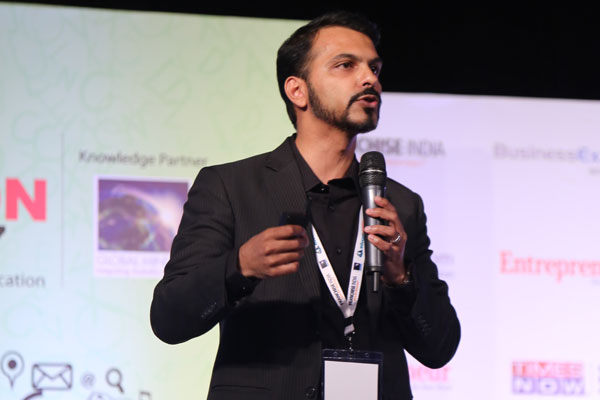- Home
- Article
- Education & Training
- Science Education: Inspiring teachers and Students
Science Education: Inspiring teachers and Students

Opportunity India Desk
Sep 29, 2017 -
4 min read


Mr. Rohan Roberts, Innovation Leader, GEMS Education- Dubai at the India Education Congress 2017embarked the session with his thoughts on Neuroscience and its impact on Learning. He stated,” In the last 10 years, we have learned more about the human brain than in any of the previous centuries combined. Brain Mapping and Brain Scanning technologies are now Information Technologies. We are learning massive amount of things about how the brain work, and most importantly, it’s impact on the field of Education. That is where Neuroeducation strikes in conflation of 4 fields namely Neuroscience, Pedagogy, Technology, and Psychology. The impact is visible in the process of making Education a Science.”
Moving forward, Mr. Roberts stressed on the subject of Transforming Education in Science. For the longest time, teachers try several strategies; some get accomplished while some fail. But, because they were not in the position to explain what they were doing, why they were doing, that’s where Neuroscience comes in.
According to Mr. Roberts, “Science shapes the world around us and gives young people: the opportunity to satisfy their curiosity about how the world works.” He continued, “Knowledge that they can use to make important decisions in their lives and skills that will benefit them in future studies and employment. If more young people take up science-related careers, more medical discoveries will be made and UK economic growth will be stronger. But many students are uninspired by science at school. They don’t find it relevant to their lives, or know what science-related careers might be available to them.”

The Innovative leader came up with an old topic of discussion regarding schools killing creativity. The change in education has been much useful. We are witnessing root learning is out, and flip learning is in. The point of explanation is that why these changes are made. So the teachers should be informed by practices and research from neuroscience will have a tremendous impact on how they educate our kids.
With the advent of Facebook, Youtube in around 2005, and with devices becoming accessible, added the Innovative leader, “Everyone started having high tech gadgets and teachers were expected to be advanced with technology.” There was a revolution 10 years ago where every teacher was supposed to up skill themselves.
Roberts said, “I go on repeating is to see ourselves as educators who are also brain changers. Neuroeducation talks about how to design a curriculum, without knowing how the brain works. Today, with neuroscience, all the teachers are expected to have their practices informed by the latest research in science. In a way, we will see that teacher will base their practices on the latest research from neuroscience.”
Further, Mr. Robert spoke about his views on the dire need of Neuroscience. He added, “We live in a world where technology is growing at exponential rate. And if we wish to create, innovative and entrepreneurial students, we got to change how we educate. Most of us are familiar with STEM, the acronym for Science, Technology, Engineering, and Mathematics. There is a story about how the acronym came from. It was a method in the United States when it was discovered that the students are lagging behind in most developed countries is Science and Mathematics. So, the US government at that time focused heavily on STEM at the expense of art, music, dance and drama and they thought that would fix the problem. But, to a huge disappointment, even after 20 long years nothing has changed.”
Before concluding the session Mr. Roberts spoke about the need to develop innovative, creative students. As per him, today, technology is disrupting everything. Anything that can be automated will be automated. Anything that can be outsourced will be outsourced. Everyone used to have a notion that machines can’t make creative things, but in 2016, the notion was changed. If people understand the nature of exponential growth, by 2020, it will take over jobs that were considered uniquely human. This is the immediate reason why people need different education.
He concluded by saying,” For students to become innovators in the 21st century, they need a different Education, nor merely more Education.”
